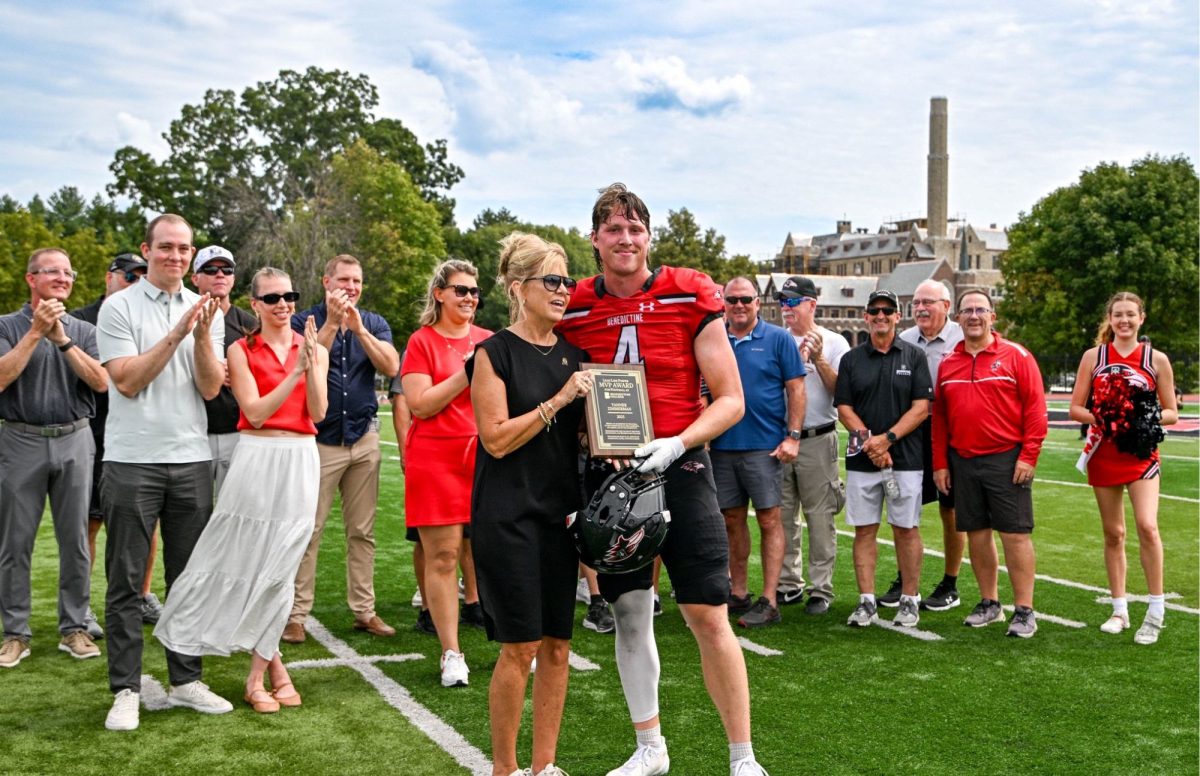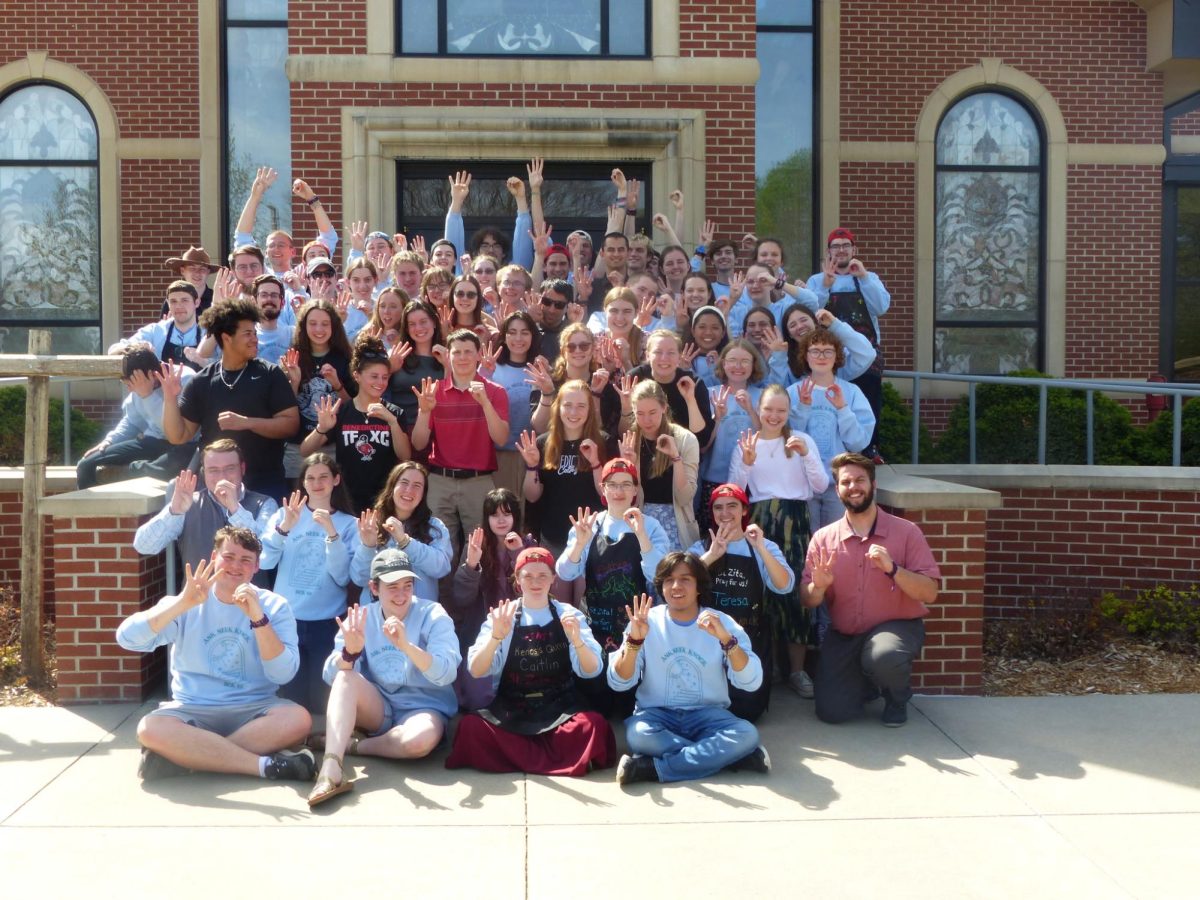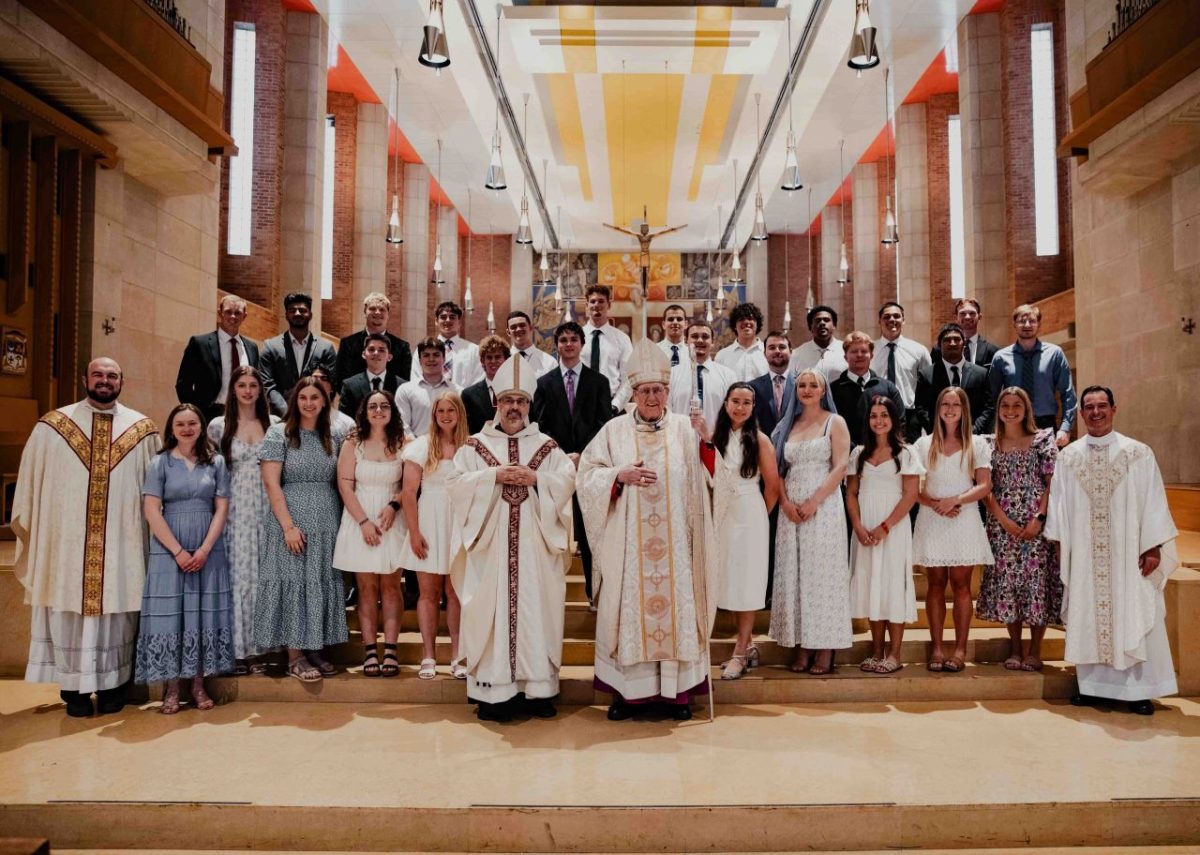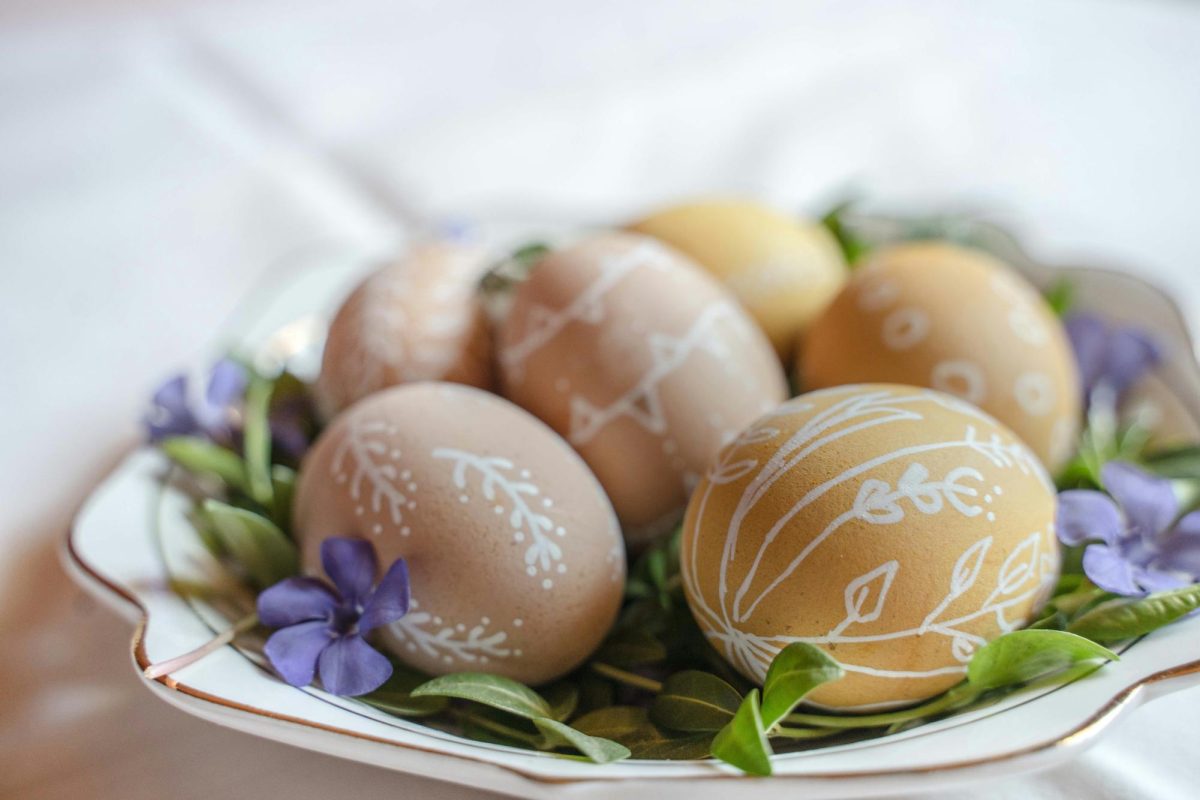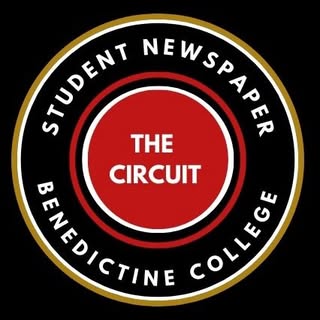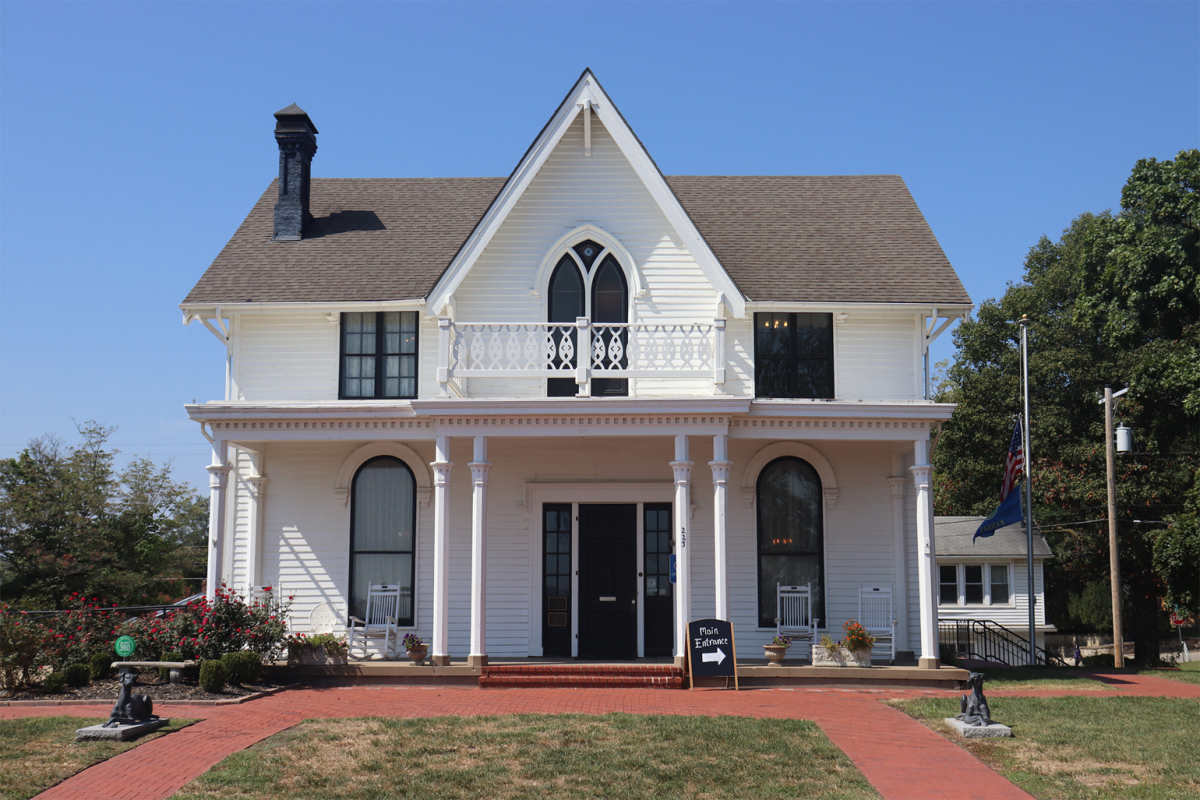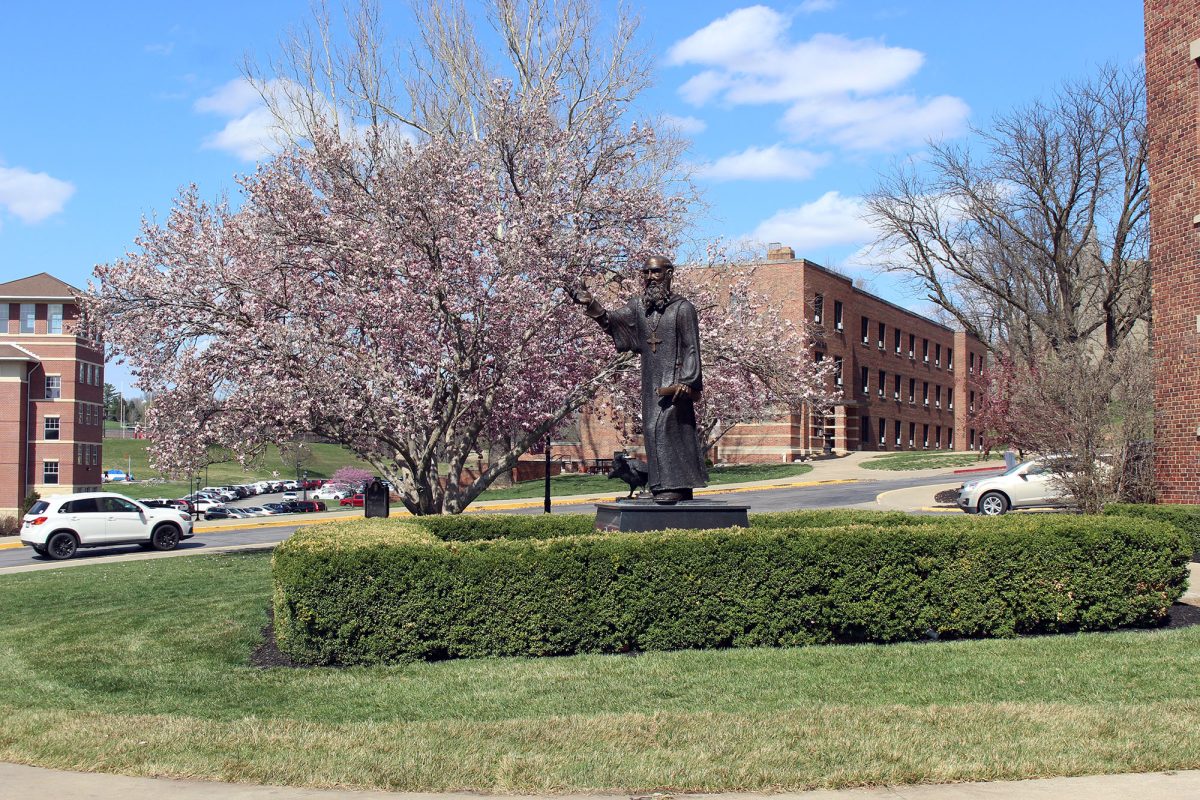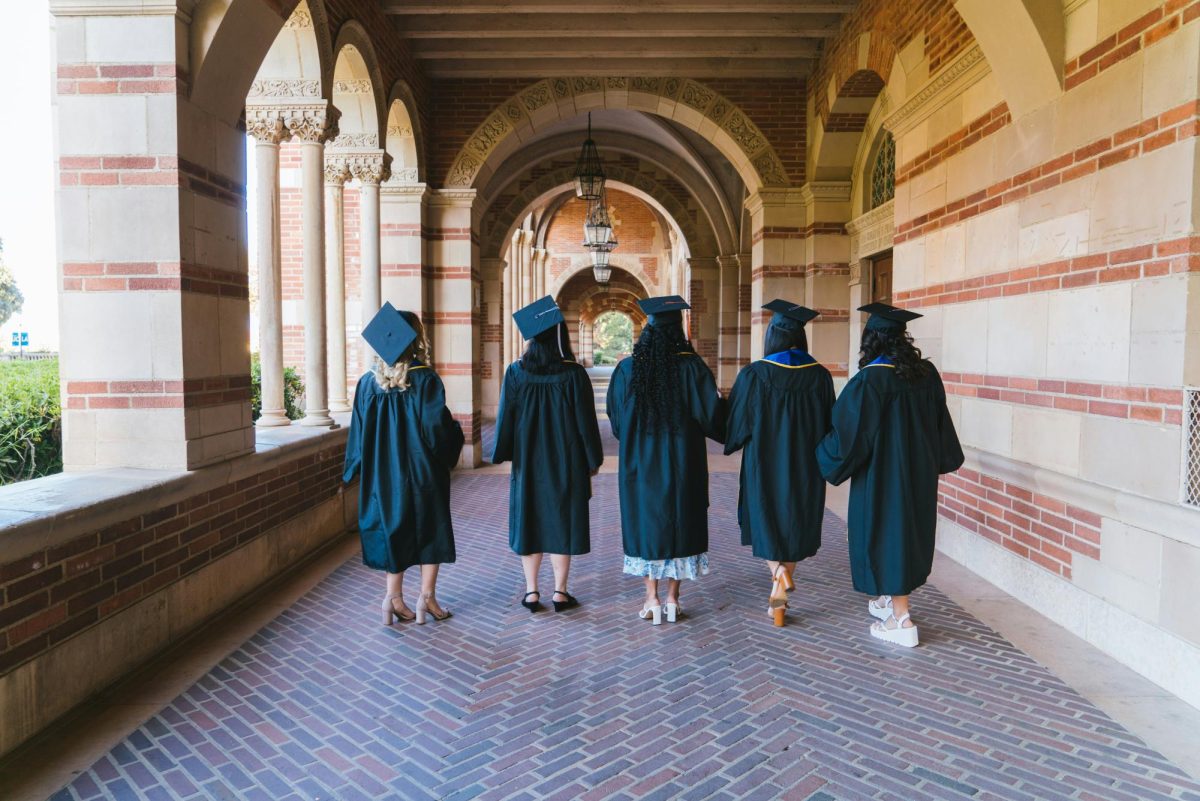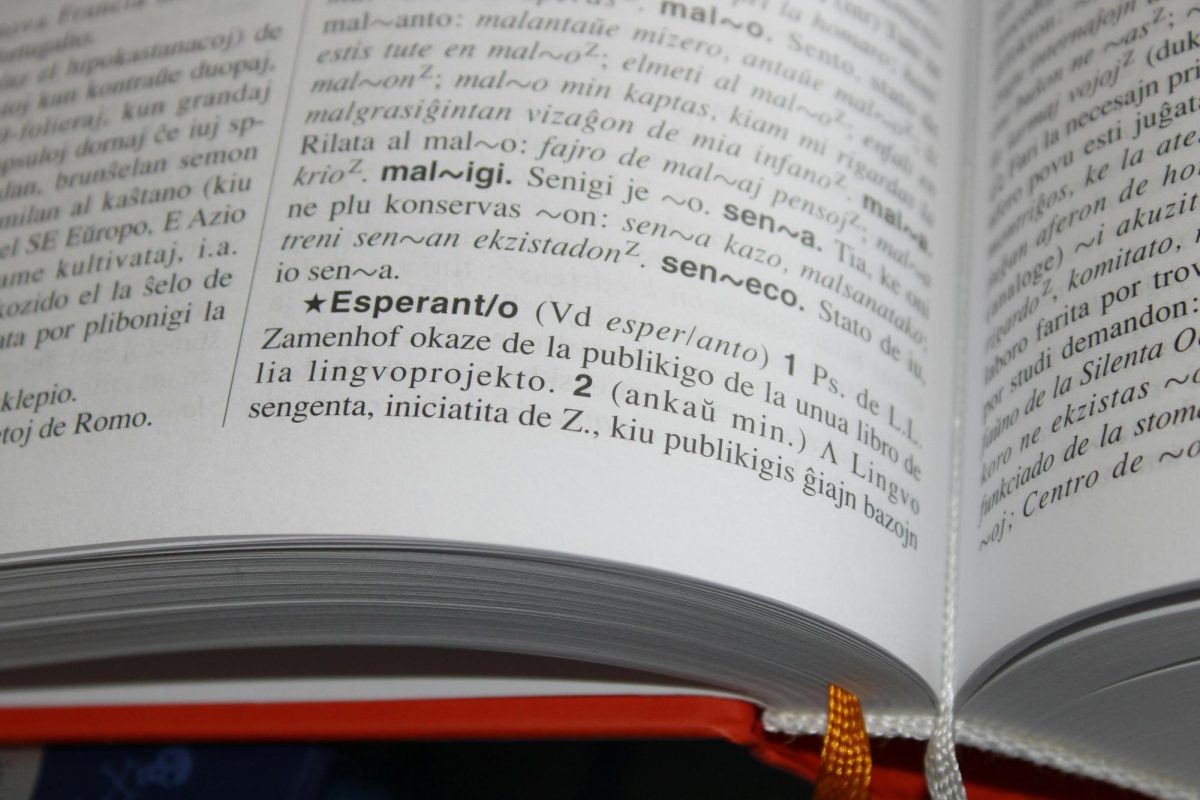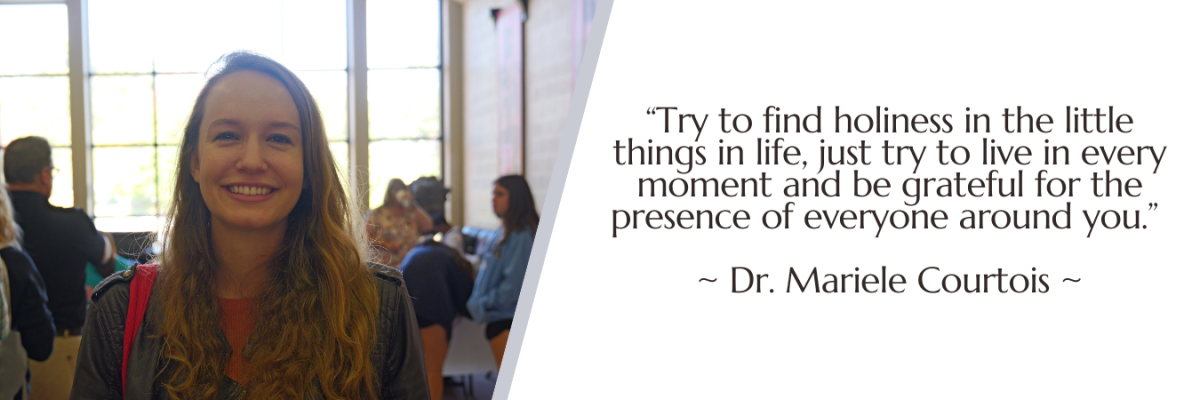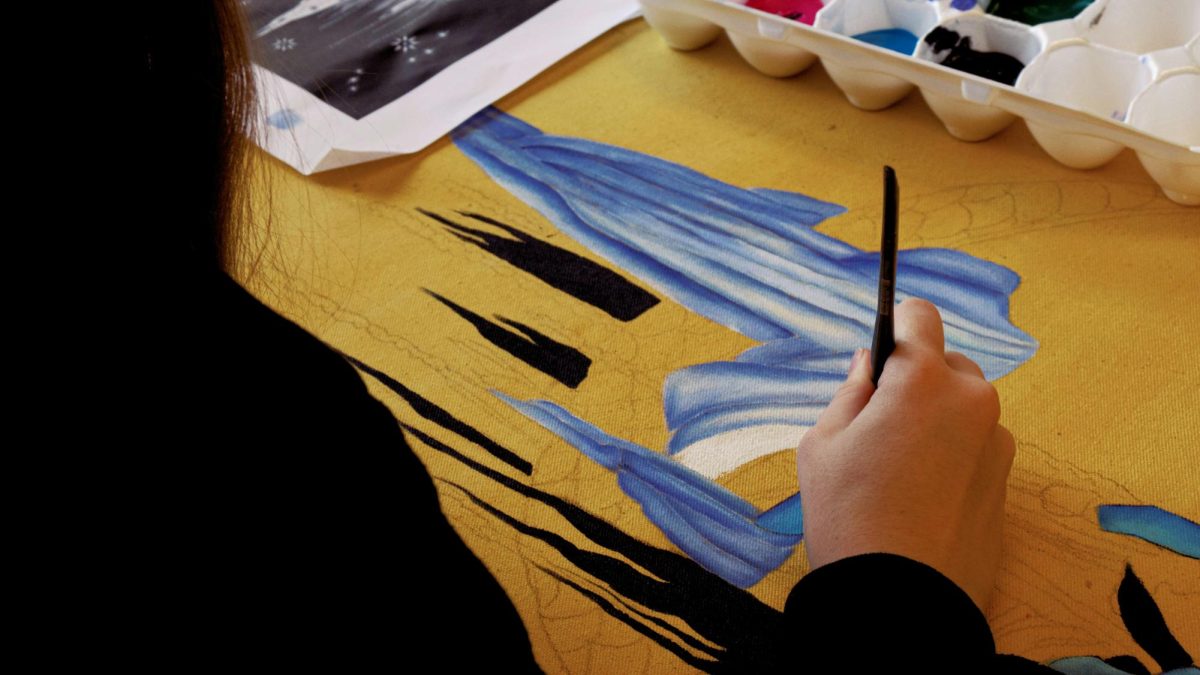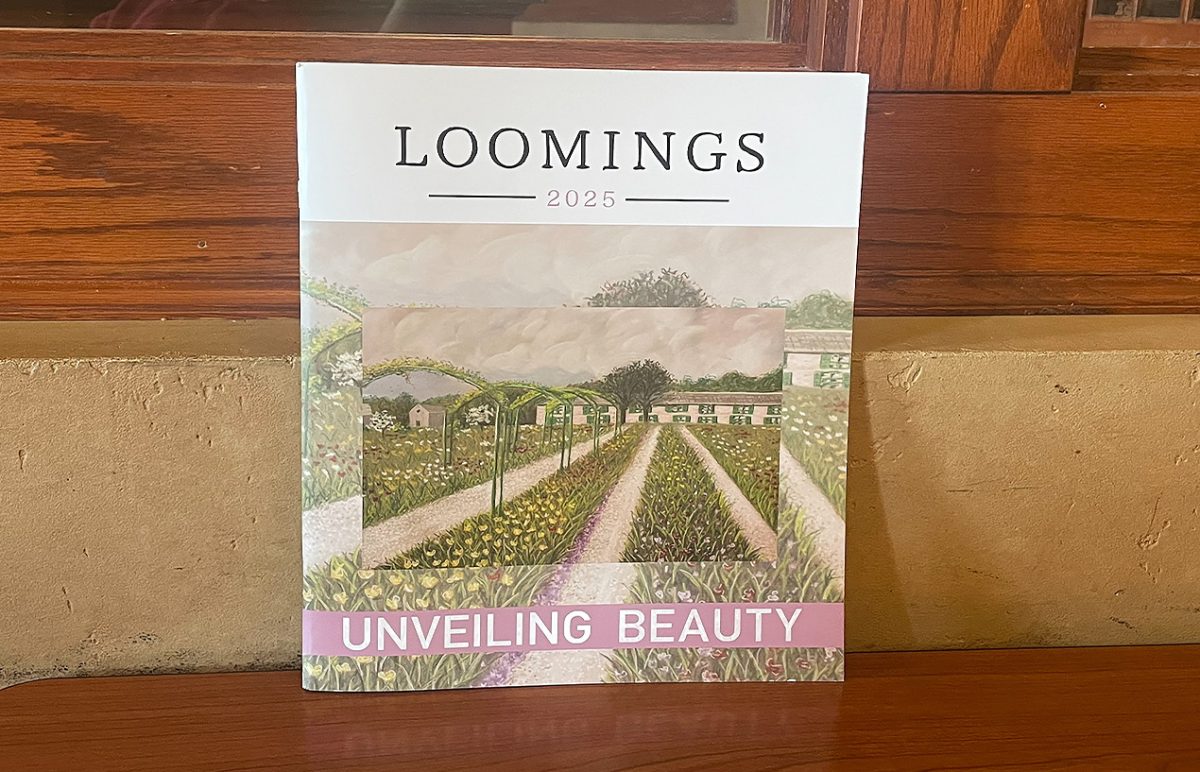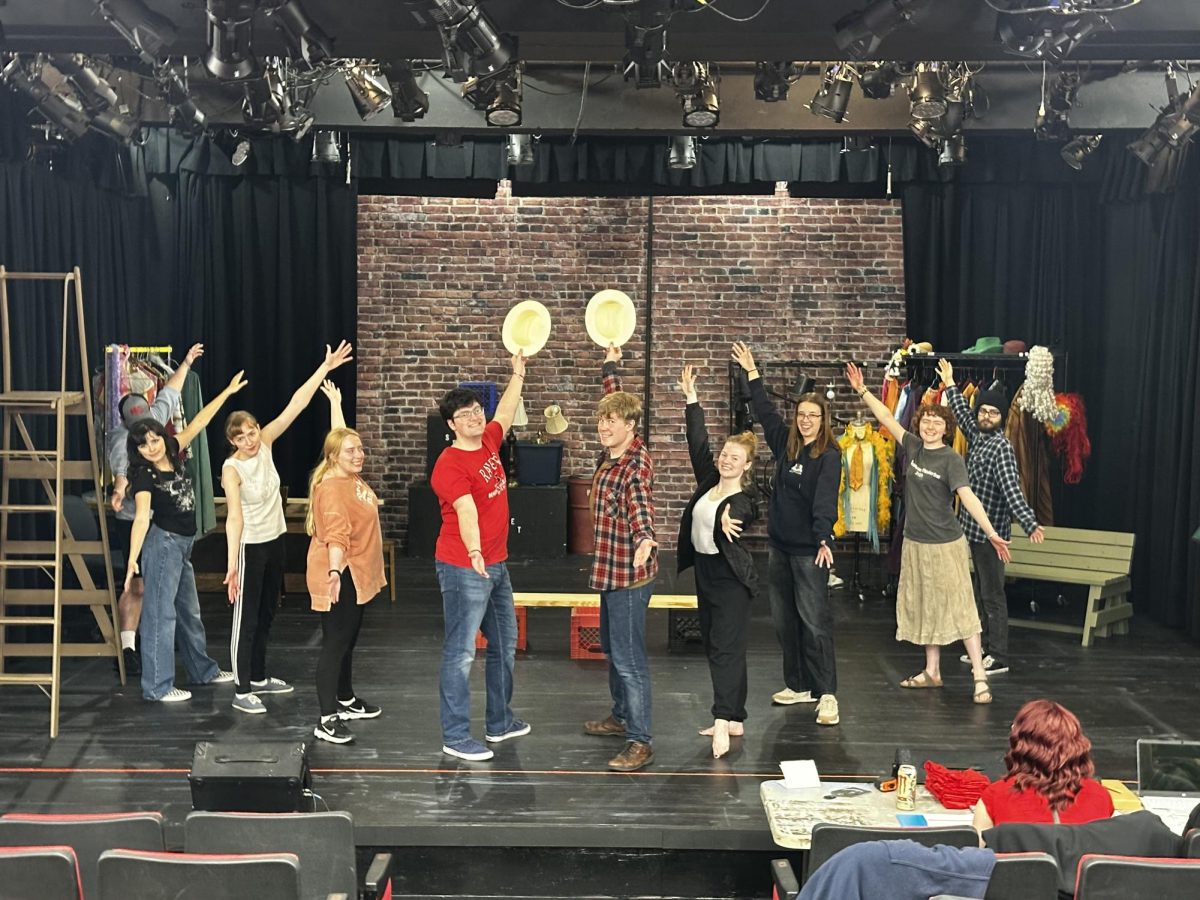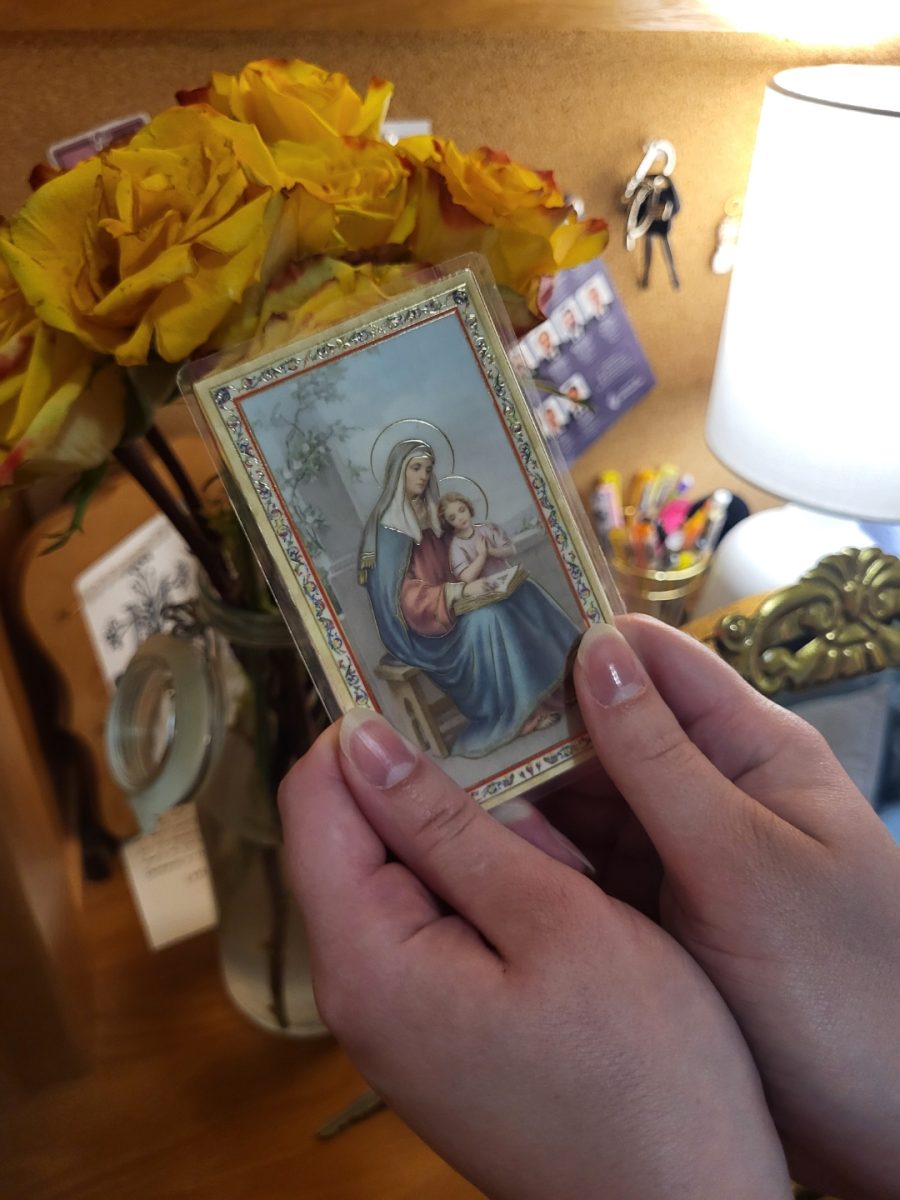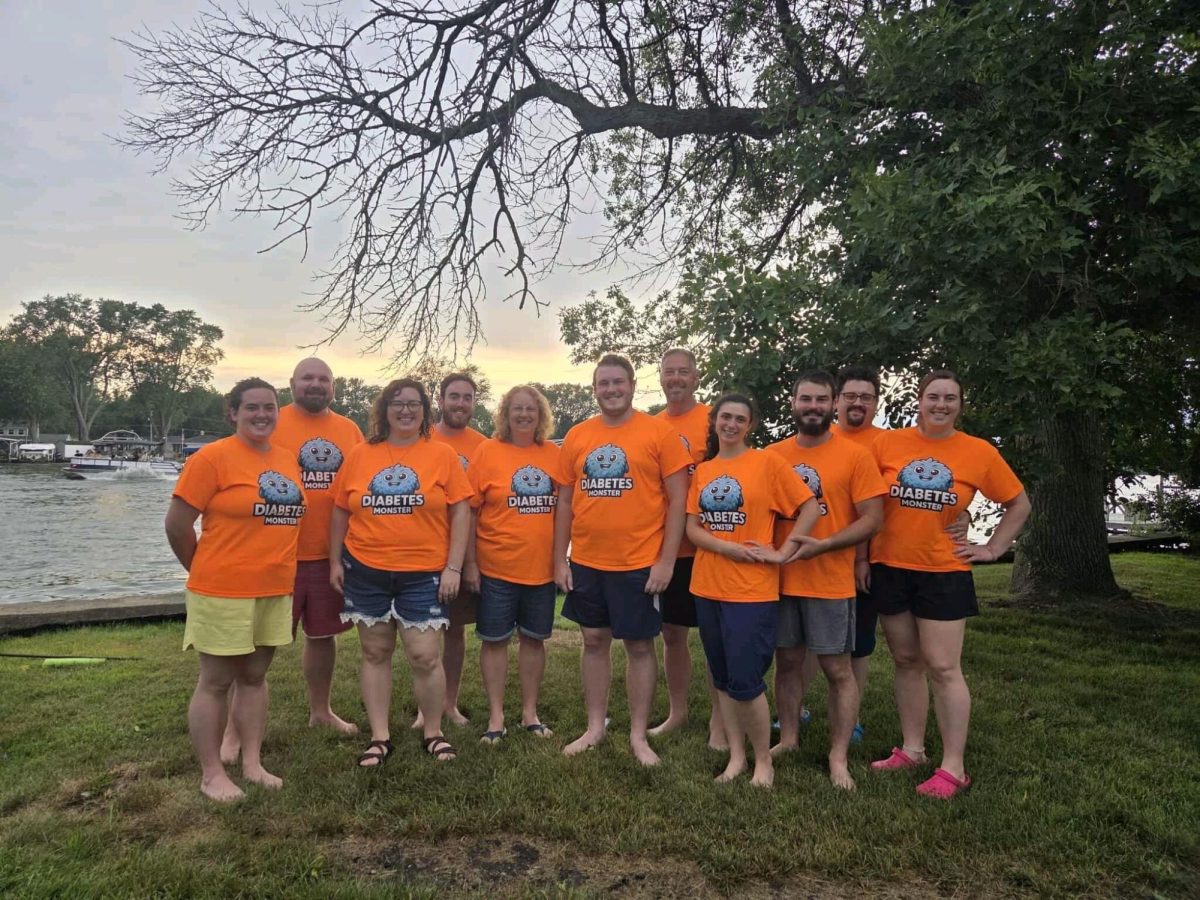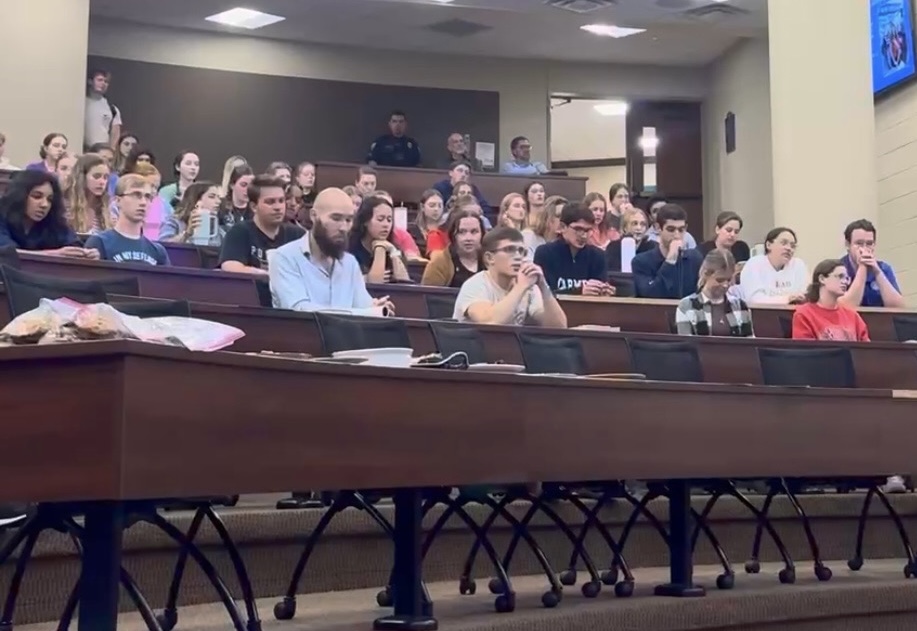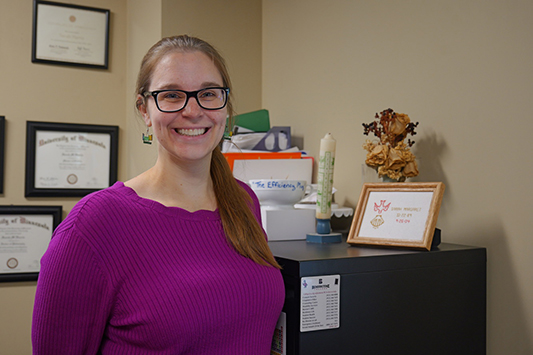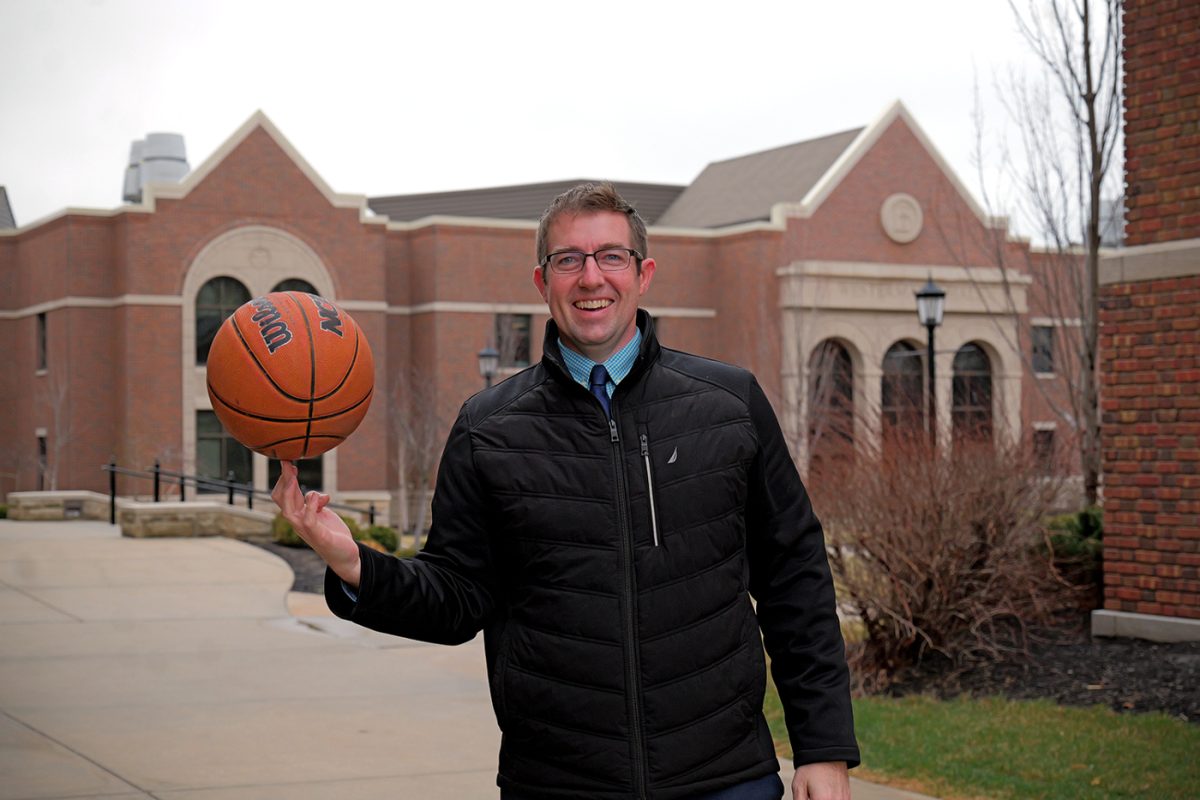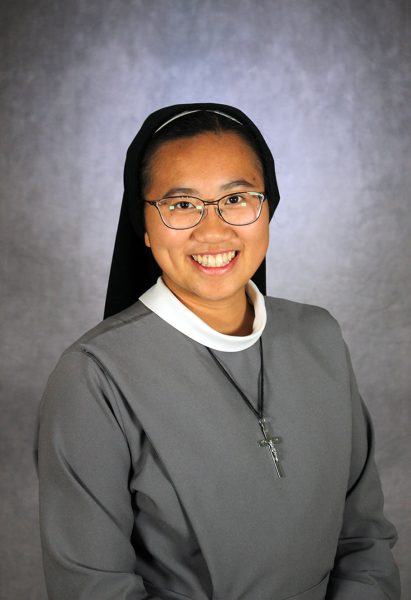In the midst of midterms and the onset of homecoming week, the intensity of the semester clashes with the routine that students have built over the past month and a half. It can be easy to view the external and internal expectations as a crashing storm or as a tidal wave interfering with every effort to stay afloat physically, mentally, and spiritually.
On October 10th, the United States Conference of Catholic Bishops invited all American Catholics to participate in the annual “Novena for Mental Health,” which also overlapped with Mental Illness Awareness Week. With surmounting pressures and activities, let’s take a step back from all the stress and recognize what taglines and core identity beliefs may be living rent-free in our hearts and minds.
Five professors at Benedictine College offered their perspectives on how we can acknowledge and respond to some negative beliefs we may hold about ourselves and the world. With their words of encouragement, the professors suggest that in giving ourselves permission to reflect on these patterns of mind, we can realize our deepest identity and purpose in life.
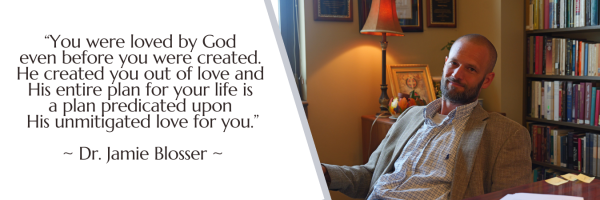
Dr. Jamie Blosser, head of the theology department at Benedictine College, named scrupulosity as a main culprit for distress and anxiety among the student population in Atchison. Even though scrupulosity can often be masked as piety, discernment, or efforts to check the boxes on devotionals, there can be an underlying self-reliance rooted in scrupulosity.
“I get indicators that sometimes students’ motivation behind these things can be less ‘I do this thing as a spontaneous gesture of my personal gratitude and love of God’ and more like ‘I need to do this to satisfy my obligations and duties for God to love me,’” said Blosser.
Although there are varying degrees and reasons for scrupulosity, it can often, according to Blosser, stem from a lack of confidence in God’s mercy, grace and forgiveness. Blosser recommends those struggling with scrupulosity to engage with contemplation of the Sacred Heart of Jesus, the Divine Mercy Chaplet, spiritual direction, and reading of the Diary of St. Faustina.
The emphasis on God’s mercy is essential to how one receives the love of the Father from the very beginning. Blosser hopes that students can recognize the gift of their belovedness as daughters and sons of a Heavenly Father who loves them before they could do anything to prove their love for Him.
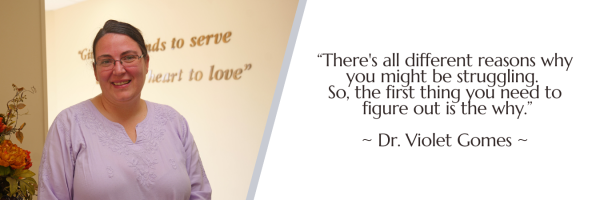
Dr. Violet Gomes, assistant professor in the School of Nursing, notes that oftentimes a lack of confidence in one’s intelligence or responsibility leads to discouragement, but she firmly believes that everyone is capable of success.
“I think you need to structure your time. I think it’s very important to structure your day and schedule, put everything on the schedule. When you schedule your time out, it allows you to be less stressed, and it allows you to do things over a time period,” said Gomes.
When students arrive to Benedictine College, it may take time for them to adjust and navigate the various aspects of their college lives. Instead of sitting in fear and confusion, Gomes suggests that students make the best use of the resources provided to them here. Whether that is study sessions, professors’ office hours, the Counseling Center or the Student Success Center, there are numerous ways for students to find answers for the “why” of their struggles.
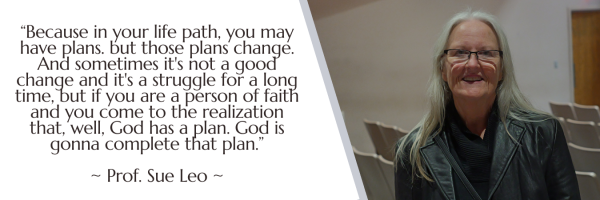
Sue Leo, associate professor of graphic design, wants all students to know that they can be creative. Whether they are in a more traditionally understood “fine arts field” or in a STEM related field, Leo is certain that creativity is an innate human capability.
“Because we’re images of God and God is a creator, so we’re creative individuals. I do not subscribe to the belief that people don’t have creativity. So, you run into people and they’re like, ‘I don’t have a creative bone in my body.’ It’s like, ‘No, I think that’s just been drummed out of you by our society. Everybody’s creative, everybody has possibilities,” said Leo.
Leo also recognizes that students may not always hear of their goodness which stems from being created by God. She strives to find ways to help her students acknowledge their own strengths and abilities, as well as strong character and desire for the ultimate good.
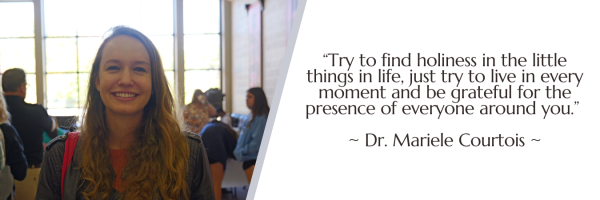
Dr. Mariele Courtois, assistant professor of theology at Benedictine College, suggests that students see their time at Benedictine College as a formation of life. Beyond stacking one’s resume or achievements, Courtois recommends students to take time to receive the gift of the present moment.
“I think taking advantage of the way that Providence has led you to be with certain people in your community and the lessons from those individuals is also really important… Your vocation is something that the college is helping to form you for, but is also something beyond,” said Courtois.
Instead of viewing their future career as the ultimate end, Courtois encourages students to believe that they are made for more. In this period of formation during college, it is imperative that students know where their true homeland is. And in seeking this, their hearts can be at peace with whatever may come from the circumstantial environment.
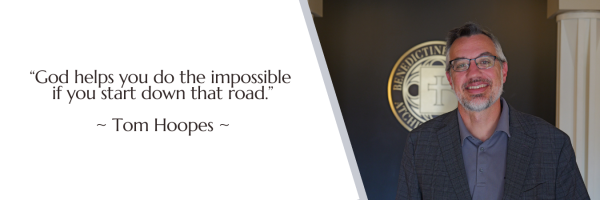
Professor Tom Hoopes, vice president for college relations at Benedictine College, knows that a variety of messages can seek prominence in our minds. Oftentimes, this tunnel of information and expanse of options can even paralyze us in our decision making. Coining the phrase “J.Alfred Prufrock Syndrome,” Hoopes considers it “ean inability to make a decision or to go one direction or another by not wanting to disturb the universe.”
Ultimately what the character in T.S. Eliot’s poem “The Love Song of J. Alfred Prufrock” depicts, is a refusal to take a step forward.
“But life depends- your life depends on you taking risks and being willing to disturb the universe. I think with my generation, but even more so with newer generations, people have been called upon less often in their lives to take risks. So, they worry too much about doing, they want to understand the ins and outs of everything before they attempt it…
And what Our Lady found out with the Fiat and what Mother Angelica found out with starting a TV station, is that you get things done not by waiting till you understand everything about what’s being presented to you, but by walking forward and taking steps toward the thing that you want.” Hoopes said.
It is by going forward, (always forward) that we develop confidence in our calling. By pursuing our interests and taking the risk of surrendering everything over to Christ, the results are often more surprising and delightful than could be expected.
As you encounter the twists and turns of this week, may your heart be at peace as you accept and live in the truth that these five professors have shared. Trust that you are indeed loved, capable, creative, made for more, and courageous.
Consider their encouragement as a personal invitation- how will you respond to the truth of being loved into being?
